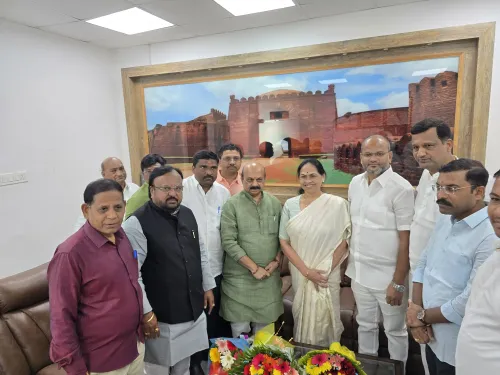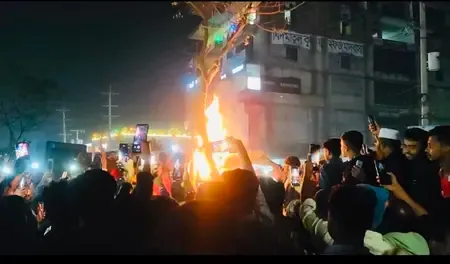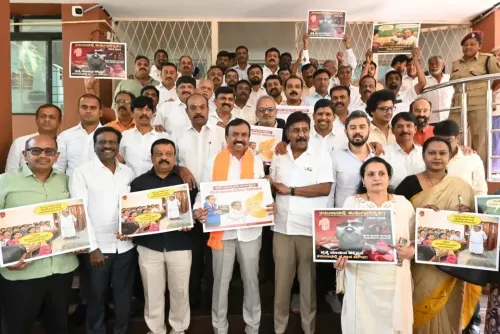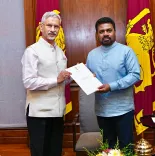How Did Singapore's Ruling People's Action Party Achieve 87 Seats in the Parliamentary Election?
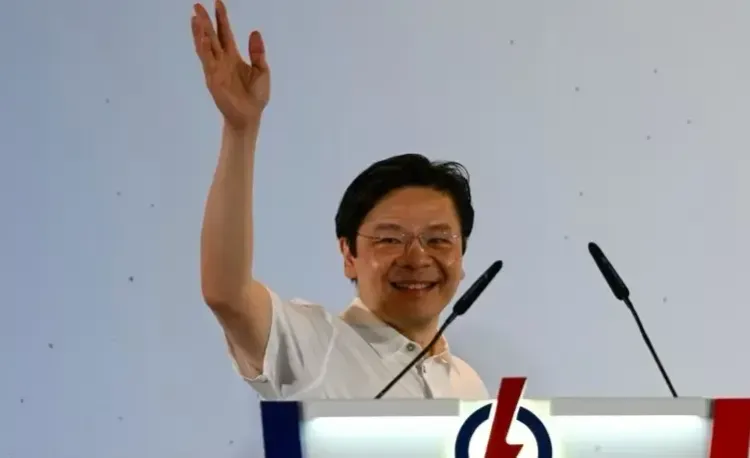
Synopsis
Key Takeaways
- PAP won 87 seats in Parliament.
- Workers' Party secured 10 seats.
- Voter turnout was approximately 82%.
- This was Lawrence Wong's first election as Prime Minister.
- Strict campaigning regulations shape the electoral landscape.
Singapore, May 4 (NationPress) In a decisive victory, Singapore's ruling People's Action Party (PAP) claimed 87 out of 97 seats in Parliament during the general election held on Saturday, as reported by local media.
The primary opposition, the Workers' Party (WP), managed to secure 10 seats.
Prime Minister Lawrence Wong, who led the PAP in this election, expressed gratitude to his supporters.
A total of 209 candidates from 11 political parties and coalitions, along with two independents, vied for the 97 elected seats in Parliament.
This election is notably the first for Prime Minister Lawrence Wong, who took over leadership of the PAP in May 2024 after the remarkable two-decade tenure of Lee Hsien Loong.
By 5 p.m., approximately 82 percent of voters, totaling 2,164,593 individuals, had participated in the voting process, according to reports from CNA, citing election authorities.
Sample counts confirmed the 10 seats won by the Workers' Party, as detailed by The Straits Times.
Overall, 211 candidates from 11 political parties are competing for 97 seats in Parliament.
Polling began at 8 a.m. and concluded at 8 p.m.
Prime Minister Wong also cast his vote at his constituency located at Evans Road in the Bukit Timah area of the city.
The PAP aims to maintain its continuous hold on governance since gaining independence in 1965.
In Singapore, voting is compulsory, with an average turnout of 94.2 percent since 2001, according to official statistics.
The PAP has triumphed in all 13 general elections since independence and is the only party contesting in every constituency.
The Workers' Party is running for 26 seats as its main competitor.
Only six parties are contesting for more than 10 seats.
The election will determine the seats in 33 constituencies, comprising 17 multi-member group representation constituencies (GRCs) and 15 single-member constituencies.
Most contests are straightforward, with only five constituencies featuring more than two competing parties.
This rapid nine-day campaign followed the official announcement on April 15.
While the PAP is expected to retain its majority, opposition parties hope to achieve modest gains, particularly in urban areas where cost-of-living concerns have been growing.
Singapore's electoral scene is characterized by strict campaigning regulations and a centralized political culture, with the PAP promoting stability, economic development, and social order in their campaign messaging.
Final results are anticipated late Saturday, although official announcements may be delayed until all votes, including overseas and postal ballots, are counted and verified.



